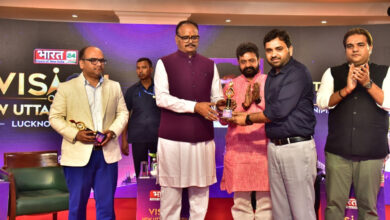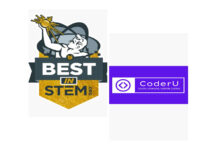Covid-19’s shot in the Arm to M&A in India’s EdTech Industry

During the last decade, companies in India’s EdTech Industry evolved from creating technology-based physical infrastructure that merely accentuated education in classrooms, to companies that leveraged the growing penetration of computers, smartphones and internet connectivity to deliver quality education to students in classrooms as well as their homes. By making this shift, EdTech companies went from complementing traditional sources of education to challenging them to adopt new practices and even competing with them. While schools upgraded their teaching processes by integrating EdTech solutions, secondary sources of education such as tuitions and publishers of educational guidebooks felt the heat of competition as EdTech companies were able to serve quality education at scale with a lot more effectiveness and efficiency.
When it comes to education, Indian audiences are fiercely driven by past results and word-of-mouth, which take time to develop for any company. As a result, even though EdTech companies were able to raise the heat on traditional secondary sources of education, they weren’t able to make Indian students and their parents entirely flip the switch on online education. However, while they waited for noteworthy results and word-of-mouth to develop, they tactfully used a big chunk of the USD 4.1 billion that was invested in this space between 2010 and 2020 towards brand building and marketing. From signing Bollywood actors as brand ambassadors, to capturing ad spots between cricket matches and purchasing sponsorship rights to the national cricket team’s jersey, EdTech companies did everything to become household names, even in the country’s hinterland, and succeeded.
The Covid-19 pandemic led Government of India to declare closure of educational institutions across the country. What originally seemed like a short break from the usual in-class lectures, soon translated into a complete breakdown of traditional educational processes. As institutions and educators across the country struggled to leverage technology to reinitiate educational processes, Ed-Tech Companies – which had already become popular by now, thanks to their marketing efforts in preceding years – found themselves in the spotlight. Covid-19 had pushed Indian students and their parents to flip the switch on online education almost overnight, and the pressure was now on EdTech companies to not only cater to these audiences effectively, but to leverage this opportunity and capture market share in other segments of Indian learners.
To take advantage of this space, EdTech companies in India raised USD 2.2 billion last year and went on an acquisition spree unlike ever seen before. Byju’s and Unacademy, India’s top two EdTech companies, valued at USD 16.5 and USD 3.4 billion respectively, secured more than 70% of funds raised. Initial signs of consolidation started appearing in the second half of 2020, as EdTech companies – led by Byju’s and Unacademy – started acquiring smaller peers to increase userbase, grow product offerings and capture audiences in newer segments. Most notable amongst these were the acquisitions of coding tutorial startup White Hat Jr., offline coaching chain Aakash Institute, higher education startup Great Learning, K-12 player Toppr, networking platform TapChief, competitive programming start-ups CodeChef and Mastree, and exam prep platforms Kreatryx, PrepLader, Coursavy, HandaKaFunda and NeoStencil.
Following the above acquisitions, Byju’s and Unacademy, which originally dominated the K-12 and exam prep space respectively, find themselves operating across a dizzying number of other verticals, with each one experiencing an unparalleled surge in demand from Indian students and their parents. The situation is a management’s dream as well as nightmare, and only time will tell whether these companies have been able to effectively consolidate, manage and leverage their acquisitions to occupy a bigger chunk of the market than before. While they’re at it, other Indian EdTech unicorns such as UpGrad, Eruditus and Vedantu are gradually growing their presence across verticals, with focus on providing a better educational experience to students and their parents, whilst waiting for the giants of India’s EdTech industry to make a slip-up so they can swoop-in to grab some market share.
About ConnectEd Technologies
Founded in 2015, ConnectEd Technologies is a Mumbai-based edtech social enterprise that specialises in executing large-scale, tech-enabled developmental projects aimed at govt. schools and the children that study therein. Our aim is to provide quality education and improve learning outcomes amongst children that study in govt. schools and, in this regard, our efforts have been recognized for their innovativeness by Government of India’s #StartupIndia program.
For the last 6 years, ConnectEd Technologies has been working with the State Govt. of Maharashtra on a CSR-funded campaign, named ‘EkShiksha’ which is linked to Hon’ble PM Shri. Narendra Modi’s ‘Digital India’ mission. Under this campaign, we have secured CSR funds from renowned organisations such as Reliance Industries, Hindustan Unilever, Sony Pictures, DHFL and Fullerton India amongst others to benefit more than 100,000 under-served students in Maharashtra through large-scale digitisation of govt. schools with e-learning infrastructure and tailor-made educational content.
Ever since the Covid-19 pandemic and ensuing closure of govt. schools, we have been working with various State Governments to digitally deploy its curriculum-linked educational content to govt. school students with CSR support from companies such as Sony Pictures, Tata Motors – ACGL, and EKC India amongst others. Currently, our educational content – which can be freely accessed by students using any phone or computer at their disposal – is being deployed to 1,50,000+ students across Maharashtra, Delhi, Gujarat, Haryana, Uttar Pradesh, Madhya Pradesh, Jharkhand and Goa; with projects across many more states in the pipeline.
Be it in its physical or digital avatar, our efforts have had tremendous impact on learning outcomes. Over a span of 3 years, our projects have increased the number of students getting ‘Grade A’ in their school examinations by 254%, and reduced the number of students getting ‘Grade D’ by 98%. In recent years, our proficiency at collaborating with key stakeholders and executing impactful projects at scale, have moved several clients to appoint us to roll-out of awareness campaigns on key themes as well.
For more information, log onto www.connected.org.in
Author Bio
Mr. Lavin Mirchandani is the Co-founder of ConnectEd Technologies, which is an edtech social enterprise that specializes in creating tailor-made technologies and deploying large-scale developmental programs that make quality education accessible to government schools and the children studying therein. For the company, he leads Content Development and Finance, which are two critical functions that lead any edtech enterprise towards a sustainable business model. In a situation where the edtech industry in India is plagued by companies that have raised immense capital to achieve scale, but remain largely unviable, Mr. Lavin Mirchandani has been able to leverage his past experience in the finance industry to build a commercially viable business model for the company from the first year of business itself. Proprietary content development processes designed by him have enabled us to have the fastest and most cost-effective content creation capabilities in the entire edtech industry, which has been instrumental in bringing viability and scalability to ConnectEd Technologies. A backbone to the organization, Mr. Mirchandani has continually strengthened the company’s strategies to meet the constantly evolving demands of vernacular State Board government schools and their students.














